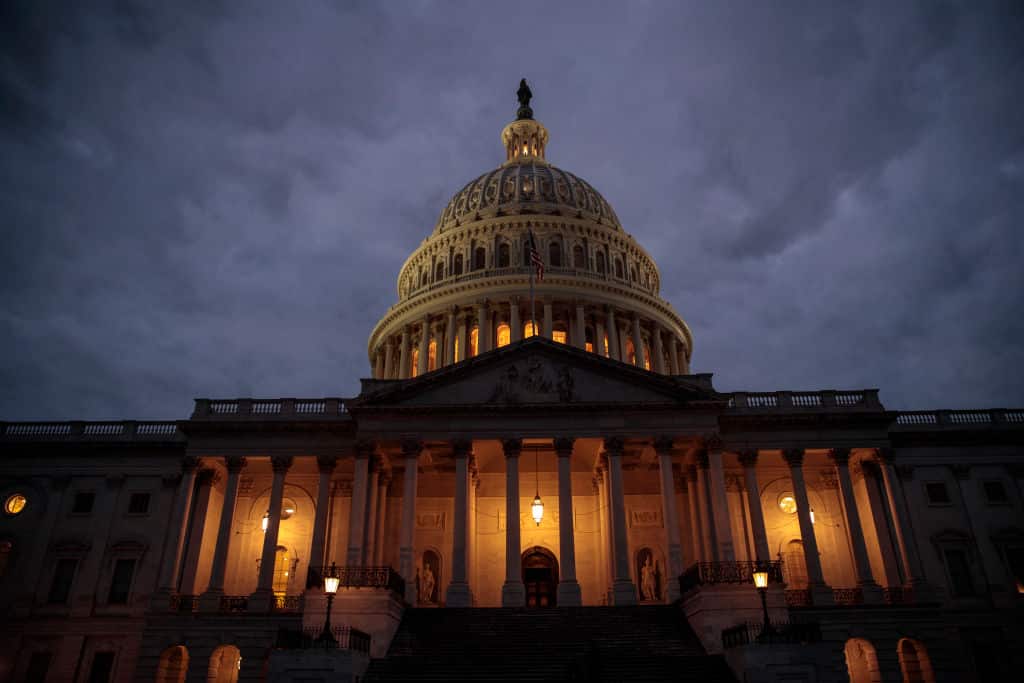In the aftermath of the Capitol riot, the House of Representatives joined together on the House floor of the Capitol Wednesday to hold a trial to impeach President Trump.
With the lawmakers’ late afternoon vote - 232 yea, 197 nay - Trump became the first president in American history to be impeached twice.
The charge? Incitement of insurrection.
However, democrats hoping to remove President Donald Trump from office prior to the end of his term will not see their dreams come true, thanks to Senate Majority Leader Mitch McConnell.
McConnell’s office reportedly will not agree to reconvene the Senate before the inauguration of president-elect Joe Biden.
McConnell noted in a memo last week that, for an impeachment trial to begin before Trump leaves office, there would need to be a unanimous consent from senators to reconvene before they are scheduled to return to Washington on January 19, BizPacReview reports.
“It would require the consent of all 100 senators to conduct any business of any kind during the scheduled pro forma sessions prior to January 19,” McConnell’s memo said.
“The Senate trial would therefore begin after President Trump’s term has expired - either one hour after its expiration on Jan. 20 or twenty-five hours after its expiration on Jan. 21,” the memo added.
Despite all efforts by the left to tarnish Trump’s legacy and cut his term short, a former federal judge insists that the Senate has no constitutional authority to impeach him once he leaves office.
Ex-U.S. Court of Appeals Judge J. Michael Luttig - who worked in the Reagan and G.W. Bush administrations - urged that this impeachment may be a game of politics.
“Once Trump’s term ends on January 20, Congress loses its constitutional authority to continue impeachment proceedings against him - even if the House has already approved articles of impeachment,” Luttig wrote.
“Therefore, if the House of Representatives were to impeach the president before he leaves office, the Senate could not thereafter convict the former president and disqualify him under the Constitution from future public office,” he added.
“The reason for this is found in the Constitution itself. Trump would no longer be an incumbent in the office of the President at the time of the delayed Senate proceeding, and would no longer be subject to ‘impeachment conviction’ by the Senate, under the Constitution’s Impeachment Clauses. Which is to say that the Senate’s only power under the Constitution is to convict – or not – an incumbent president,” he said, citing Article 1, Section 3, and Article II, Section 4.
Congress has no power to impeach or try a private citizen, which Trump would be following the inauguration of Joe Biden.
 In the aftermath of the Capitol riot, the House of Representatives joined together on the House floor of the Capitol Wednesday to hold a trial to impeach President Trump. With the lawmakers’ late afternoon vote – 232 yea, 197 nay – Trump became the first president in American history to be impeached twice. The charge? […]
In the aftermath of the Capitol riot, the House of Representatives joined together on the House floor of the Capitol Wednesday to hold a trial to impeach President Trump. With the lawmakers’ late afternoon vote – 232 yea, 197 nay – Trump became the first president in American history to be impeached twice. The charge? […]






